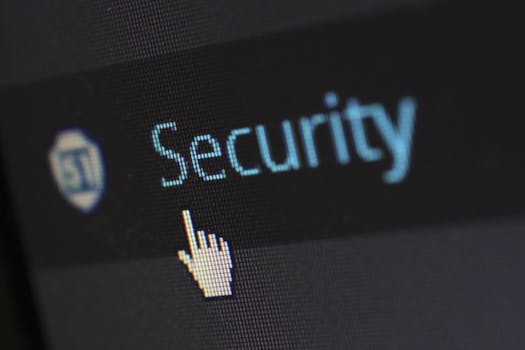Introduction
As the world becomes increasingly digital, the demand for cybersecurity professionals is set to soar. With the rise in cyber threats and data breaches, organizations are actively seeking skilled individuals to protect their information assets. One way to enhance your career prospects in this dynamic field is by obtaining relevant cybersecurity certifications. In this article, we will explore the top cybersecurity certifications you should consider in 2025.

Relevant visual content related to Cyber Security
1. Certified Information Systems Security Professional (CISSP)
The CISSP certification is recognized globally and is ideal for experienced security practitioners, managers, and executives. It covers a broad range of cybersecurity topics, including security and risk management, asset security, and security architecture. Obtaining a CISSP certification showcases your ability to effectively design, implement, and manage a holistic cybersecurity program.
Relevant visual content related to CISSP
Why Choose CISSP?
- High Demand: Organizations are always on the lookout for CISSP-certified professionals.
- Versatile Knowledge: It prepares you for varied roles in information security.
- Networking Opportunities: Join a vast community of cybersecurity professionals.
2. Certified Ethical Hacker (CEH)
The CEH certification is perfect for IT professionals who want to understand and combat malicious hacking techniques. It teaches you how to think like a hacker to better defend against cyber attacks. CEH covers topics like footprinting, scanning networks, and system hacking.

Relevant visual content related to CEH
Benefits of CEH Certification
- Hands-On Experience: Gain practical skills through labs and simulations.
- Career Progression: Opens doors to roles such as penetration tester and security analyst.
- Recognized Globally: CEH is a well-known certification in the cybersecurity community.
3. CompTIA Security+
CompTIA Security+ is an entry-level certification that covers essential security concepts. It’s ideal for those new to cybersecurity and serves as a stepping stone to more advanced certifications. Topics include threats and vulnerabilities, identity management, and cryptography.

Relevant visual content related to Security+
Why Go for CompTIA Security+?
- Foundational Knowledge: Build a strong foundation in cybersecurity principles.
- Vendor-Neutral: Learn skills applicable to many different technologies.
- Acknowledged by Employers: Increases your chances of landing an entry-level position.
4. Certified Information Security Manager (CISM)
CISM is tailored for managerial roles. It emphasizes management, risk management, and incident response strategies. This certification is ideal for those looking to take leadership roles in information security management.

Relevant visual content related to CISM
Advantages of CISM
- Focus on Management: Prepares professionals for management roles.
- Globally Recognized: A prestigious certification valued by employers.
- Enhanced Skill Set: Knowledge of governance and risk management.
5. Certified Information Systems Auditor (CISA)
The CISA certification is focused on the auditing, control, and security of information systems. It’s particularly valuable for professionals involved in audit, control, and security roles. This certification demonstrates your proficiency in assessing information systems’ effectiveness and security.

Relevant visual content related to CISA
Why Pursue CISA?
- Specialized Knowledge: Gain an in-depth understanding of information system auditing.
- Career Opportunities: Opens pathways to audit and compliance roles.
- High Earning Potential: CISA holders often command higher salaries.
Conclusion
In the rapidly evolving landscape of cybersecurity, certifications can significantly enhance your career prospects and ensure you remain competitive. The certifications mentioned above are among the most recognized in the industry for 2025. Whether you’re starting your career, looking to specialize, or advancing into management roles, there’s a certification that aligns with your goals. Invest in your future by pursuing these valuable credentials, and take your place in the growing field of cybersecurity.
FAQs
1. What is the best cybersecurity certification for beginners?
The CompTIA Security+ certification is an excellent choice for beginners. It covers essential concepts and provides a solid foundation in cybersecurity.
2. How long does it take to obtain a CISSP certification?
Typically, it requires several months of study and preparation, especially since candidates need five years of professional experience in the cybersecurity field.
3. Are there any prerequisites for the Certified Ethical Hacker certification?
While there are no strict prerequisites, having knowledge in networking and security basics can greatly help with the exam.
4. How much do cybersecurity certifications cost?
Costs vary by certification, ranging from a few hundred to over a thousand dollars, not including study materials or preparation courses.
5. Do certifications guarantee a job in cybersecurity?
While certifications enhance your resume and demonstrate expertise, they don’t guarantee a job. Experience and ongoing education are also essential factors.